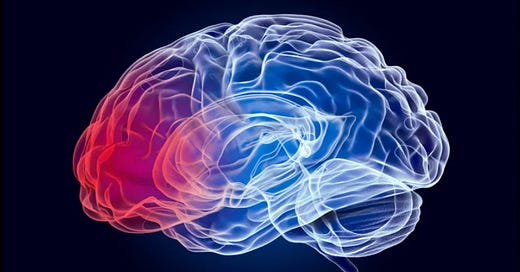Depakote use in response to behavioral changes post Traumatic Brain Injury
DISCLAIMER
The content provided in this Substack post is for entertainment and informational purposes only and is not intended to serve as medical advice. The views and opinions expressed herein are those of the writer and should not be taken as definitive or authoritative. Readers should not rely solely on the information provided in this post to make decisions about patient care. Instead, use this content as a starting point for further research and consult a qualified healthcare professional before making any changes to treatment or medication regimens.
Introduction:
Depakote, also known by its generic name, valproic acid, is a powerful medication that has carved out a significant place for itself in the psychiatric pharmacopoeia. Commonly used in the treatment of epilepsy, bipolar disorder, and migraines, Depakote has shown its utility across various neurological and psychiatric conditions. One area of interest that we'll explore further today is its use in managing behavioral changes in patients following traumatic brain injury (TBI).
Mechanism of Action: A Look into how Depakote Works
Depakote, classified as an anticonvulsant and mood-stabilizing drug, has a multifaceted mechanism of action that sets the stage for its broad therapeutic applications. While its exact mechanisms are not fully understood, two key processes appear to be crucial to its function.
Enhancement of GABA Activity: Depakote is known to enhance the activity of gamma-aminobutyric acid (GABA), the primary inhibitory neurotransmitter in the brain. By augmenting GABA function, Depakote can reduce neuronal excitability, playing a crucial role in its antiepileptic and mood-stabilizing effects.
Inhibition of Sodium Channels: Depakote can block voltage-gated sodium channels, stabilizing hyper-excitable neuronal membranes, further contributing to its antiepileptic effects.
Depakote in Psychiatric Practice
Depakote's primary use in psychiatry is as a mood stabilizer in bipolar disorder. The enhanced GABA activity and reduced neuronal excitability help to temper the mood fluctuations seen in bipolar disorder, especially during manic episodes. Its efficacy extends to the prophylactic management of migraines as well, reducing frequency and severity.
Depakote in Traumatic Brain Injury
In patients who have experienced a TBI, various behavioral changes, including impulsivity, aggression, and mood instability, can surface due to disrupted brain circuits. Here's where Depakote's unique pharmacology can step in.
Depakote, with its mood-stabilizing properties, can be a viable treatment option to manage such behavioral changes post-TBI. Its enhancement of GABA activity and resultant reduction in neuronal excitability may aid in 'stabilizing' disrupted brain circuits, thereby mitigating behavioral symptoms. It's worth noting, though, that the evidence supporting this use is mostly anecdotal and based on the drug's successful use in related conditions. Randomized clinical trials are needed to establish its efficacy formally.
Conclusion
Depakote exemplifies the versatile utility of psychiatric medications. Its ability to augment inhibitory neurotransmission and stabilize neuronal excitability underlies its use in various conditions, from bipolar disorder to the behavioral sequelae of traumatic brain injury. While we continue to unravel the complexities of its mechanisms, Depakote's broad-ranging impact on psychiatric care remains an intriguing subject of study. As always, the careful application of such potent tools is necessary, balancing potential benefits against side effects in our pursuit of optimal patient care.




